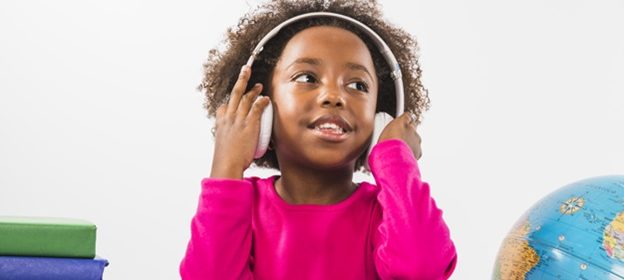Music can directly impact people, regardless of age. It can influence our mood and facilitate concentration and focus. It is also a great tool to improve productivity and creativity. Several studies have proven the effectiveness of music in enhancing our cognitive abilities.
Listening therapy also known as APP or Audio-Psycho-Phonology is a systematic therapeutic program that utilizes music specifically curated for an individual. The music brings about positive improvements in an individual’s creativity, auditory processing, motor coordination, executive functioning, communication skills, social interaction, emotional intelligence, problem-solving, and critical thinking skills.
Let’s take a look at what to expect with listening therapy and its benefits for children with special needs.
How Does Listening Therapy Work?
Therapeutic listening works by stimulating and exercising the vestibular system or the inner muscles of our ears. By doing this, it enhances the processing of sensory information to the brain and throughout the several connections of the nervous system.
The vestibular system refers to the part of the body that takes charge of coordinating our movements. It affects our spatial orientation and sense of balance by sending out signals to our brain about motion, motor functions, and posture. In simple terms, the vestibular system is the main organizer of our bodily senses. It lets us make sense of time and space in coordination with our body’s perspective.
Music can be specifically engineered depending on the needs of an individual. It can exercise different parts of the brain to encourage better communication, balance, movement, and higher cognitive functions.
Listening therapy is often done together with sensory integration to provide a multi-sensory experience for a child. High-quality headphones are typically used for effectiveness and speakers can be used as an alternative.
What To Expect With Listening Therapy?
Results vary with listening therapy depending on the individual. Occupational therapists often employ therapeutic listening to help special needs children with sensory processing disorder. Positive effects can include:
- Enhanced emotional state and better self-regulation
- Better sleeping patterns
- Balanced eating habits
- Heightened attention and awareness with a decreased sensitivity to sound
- Reduced sensory defensiveness
- Enhanced spatial orientation
- Better emotional expression i.e. verbalization of feelings including needs and wants
- Improved social-interaction skills
The Benefits For Children With Special Needs
Occupational therapists use listening therapy to benefit kids with ADHD, ASD, and Down Syndrome. While each developmental disorder has its own distinct needs, an occupational therapist can tailor it accordingly to make it effective.
Music can stimulate parts of an autistic child’s brain than can effectively improve their cognitive functioning. This improves their ability to perform motor tasks and concentrate on activities. This is especially important to enhance their quality of life and help them achieve their full potential.
Since music is a multi-sensory experience, it can appeal to a child’s sensory strengths and needs. In addition, listening therapy with sensory integration involves the different parts of the brain working at once. These include the sensory, auditory, visual, prefrontal and motor cortex, the hippocampus, cerebellum, and amygdala.
Speak To Your Therapist
If you want to learn more about how listening therapy can benefit your child, speak to a specialist today. Learning centers are usually immediate sources that provide listening therapies for special needs children. Apart from this, other treatments such as Speech and Language therapy, ABA therapy, and occupational therapy are also available.


